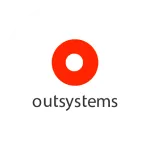How Zoho Empowers Manufacturers to Drive Efficiency and Innovation
Manufacturing businesses face unique challenges, including long sales cycles, complex operations, compliance requirements, and the need to balance efficiency with innovation. Traditionally offline, many manufacturers are now turning to digital tools to strengthen their market presence and optimize internal processes. Zoho’s suite of applications offers a powerful, integrated solution to manage every aspect of manufacturing, from marketing and sales to operations, finance, support, and analytics. By unifying these functions, manufacturers can stay competitive, reduce inefficiencies, and deliver greater value to customers and stakeholders.
Marketing & Website
Manufacturing companies often operate in B2B markets and can use Zoho to enhance their digital presence and lead generation. Zoho Sites (or Zoho Commerce) allows a manufacturer to create a professional website or product catalog portal to showcase product specifications, case studies, and client testimonials. Integrated web forms (via Zoho Forms or CRM web-to-lead forms) capture inquiries from potential buyers or distributors and feed them into Zoho CRM. Zoho SalesIQ can be placed on the website to greet visitors (such as procurement managers) and answer questions about products, or to route high-intent visitors to a sales representative via live chat. Manufacturers also leverage Zoho Campaigns for email newsletters (announcing new product lines, for example) and Zoho Social to manage LinkedIn, Twitter, or Facebook content for brand visibility. Zoho’s integration with ad platforms means that leads from Google Ads campaigns (e.g. someone searching for an industrial equipment supplier) can flow directly into CRM for the sales team to pursue. These digital marketing tools help traditionally offline industries, such as manufacturing, generate and nurture leads through online channels.
Sales
In manufacturing, Zoho CRM is customized to manage long sales cycles, complex quotes, and B2B account relationships. It serves as a central hub for all customer and deal information, tracking leads (such as incoming product inquiries), sales opportunities, quotations, and orders from distributors or direct clients. Sales teams can use CRM to track communication history and ensure timely follow-ups on each deal. Zoho CRM also integrates with other Zoho apps to streamline order processing; for instance, when a quote is accepted, a sales order can be generated and pushed to fulfilment. Zoho Inventory is crucial here for managing stock of raw materials and finished goods, and it updates the CRM or ERP system on what’s available to sell. With Zoho Inventory (and possibly Zoho Creator custom apps), manufacturers maintain real-time visibility into stock levels across warehouses and can set reorder thresholds. For complex or custom product configurations, Zoho Creator can be used to build a CPQ (configure-price-quote) solution that works with CRM to generate accurate quotes. On the communication side, Zoho Meeting helps sales engineers run remote product demos or consultations with clients (especially useful for global customers). WhatsApp integration allows quick communication of order updates or technical clarifications with clients and field sales reps. To expedite closing deals, Zoho Sign is used to get purchase orders, sales contracts, NDAs, or service agreements signed off digitally – speeding up what used to be fax or paper processes. Zoho Bookings can also be offered for clients to schedule factory tours or sales calls at their convenience. Throughout the process, Zoho Mail keeps all email correspondence with clients organized, and can be linked with CRM records for context.
Operations & Projects
Zoho’s operations suite is invaluable for manufacturers to streamline production and internal workflows. Zoho Projects can manage complex projects, such as new product development, engineering design cycles, or plant expansion projects, with Gantt charts, task dependencies, and milestones to ensure timelines are met. Day-to-day production operations can be enhanced through Zoho Creator custom apps: for example, a manufacturer can build a production planning app or a machine maintenance scheduling system on Zoho Creator. These custom solutions can integrate with Zoho data (and even IoT sensors via APIs) to trigger alerts or updates. Zoho WorkDrive centralizes critical documents – including designs/CAD files, quality manuals, compliance certificates, and standard operating procedures – in one secure repository with access controls, ensuring shop floor managers and engineers always use the latest versions. Zoho People is used for human resources management, including tracking worker shifts, attendance, skills/certifications, and handling payroll. Manufacturing companies often have strict safety and compliance training needs, and Zoho People can track training completion and certifications for all employees. Real-time internal communication is facilitated by Zoho Cliq, which enables instant connection between office staff and factory floor supervisors (e.g., a production issue can be escalated in a Cliq channel to receive quick support). For quality control, Zoho Creator can digitize quality checklists and incident reporting – replacing paper logs with a mobile app for quality inspectors. And if the manufacturing process requires coordination with external vendors (for raw materials or components), Zoho CRM’s vendor management or a custom Creator portal can be used to streamline purchase orders and updates from suppliers.
Finance & Billing
Zoho Books handles the financial backbone for manufacturing firms. It manages invoicing for product shipments, tracks expenses, performs job costing, and keeps the general ledger. Because Zoho Books is integrated with sales and inventory data, it can automatically record a sales invoice once an order is fulfilled and adjust inventory asset values accordingly. This integration reduces manual data entry and errors in financial records. Manufacturers can set up Zoho Books to handle multiple currencies if they deal with international suppliers or customers, and to manage tax compliance (sales tax, VAT, GST as applicable) on raw materials and finished goods. Zoho Expense is used to log expenses such as travel for sales or technical staff, machinery maintenance expenses, or utility bills, streamlining approval workflows for these costs. If the business has any recurring revenue models (for instance, maintenance contracts, or consumables supply on a subscription basis), Zoho Billing can automate those recurring invoices and payments. Additionally, manufacturing often involves large capital expenditures and purchase orders: Zoho Books can integrate with Zoho Inventory and Zoho Purchase Order systems (part of Zoho Inventory or Creator apps) to manage the procure-to-pay process. This ensures that when raw materials are received and bills are entered, they flow into accounting. Financial dashboards in Zoho Books give insight into cash flow, outstanding receivables, and expenses, helping management maintain healthy operations. For financial documents requiring approvals (like large purchase orders or contract agreements), Zoho Sign might be used to get electronic signatures from managers and vendors, maintaining a digital paper trail.
Support & Feedback
After-sales support is crucial for manufacturing, especially if the company provides maintenance or warranty services for its products. Zoho Desk can be deployed to manage support tickets from customers or dealers. For example, if a client reports a machine breakdown, a ticket can be logged in Zoho Desk, priority assigned, and the service team can track it through resolution. This ensures no customer issue is overlooked, and it builds a knowledge base of common issues and solutions. The helpdesk can also be used internally – e.g., the IT department can use Zoho Desk to handle internal technical support for machinery software or employee IT needs, however, the primary focus is often external customer support. Zoho Assist allows support engineers to remotely connect to client systems or equipment (if internet-connected) to troubleshoot issues without always needing to travel on-site, which can significantly reduce downtime for the customer. Zoho Survey is useful for getting feedback on product performance and customer satisfaction. A manufacturer might send out a survey after a product has been delivered or installed to gather client input, or periodically survey distributors about their experience. Insights from surveys and support tickets can feed back into product development improvements. Additionally, Zoho Social monitoring can help manufacturers listen to what customers are saying about their products on social media or forums, as part of reputation management and feedback gathering. All support and feedback data being in Zoho allows analysis of common problem areas, which can guide quality improvements and better training for support staff.
Analytics & AI
Zoho Analytics enables manufacturing companies to transform their operational data into actionable intelligence. By aggregating data from CRM (sales pipeline, customer orders), Inventory (stock levels, fulfillment rates), Books (financials), and even production systems, management can monitor key performance indicators on customizable dashboards. Examples of analytics in manufacturing include production yield reports, on-time delivery rate, inventory turnover, sales by region or product line, equipment downtime analysis, and quality defect rates. With Zoho Analytics, users can slice and dice this data and even set up alerts for specific thresholds (e.g., if inventory of a critical component drops below a level). Zoho DataPrep is available to help clean and import data from external sources (like legacy ERP systems or Excel sheets) into Zoho Analytics for a complete picture. On the AI front, Zia can assist in predicting trends – for example, Zia can forecast demand for products based on historical sales data and seasonal trends, helping in production planning. Zia’s anomaly detection might flag an unusual spike in defective products or delays, prompting managers to investigate early. Manufacturers can also use Zia Vision (an AI image recognition in Zoho Creator) for tasks like identifying product defects via images, if integrated into a custom app.
Additionally, Zia’s chat assistant can answer managers’ natural-language questions like “What was last month’s production output versus target?” within Zoho Analytics. For process automation, Zoho Flow integrates Zoho with third-party manufacturing systems (for instance, sending an alert in Cliq or CRM if an IoT sensor on a machine triggers a warning). Zoho RPA (Robotic Process Automation) can automate routine data transfers between older systems and Zoho apps (like moving data from an on-premise manufacturing software into Zoho Books nightly), reducing manual work and ensuring data consistency across the organization.
Conclusion
The manufacturing sector is evolving rapidly, and companies that embrace digital transformation gain an edge in efficiency, client engagement, and long-term sustainability. Zoho provides manufacturers with an end-to-end ecosystem that connects departments, automates manual work, and delivers actionable intelligence across operations. Whether it’s driving sales, managing production, or enhancing after-sales support, Zoho helps manufacturers achieve growth with confidence and agility.
Why Choose Xponential Digital
Choosing the right Zoho implementation partner can make all the difference in how effectively you run your operations. At Xponential Digital, we go beyond basic setup; we tailor Zoho applications to fit the complex needs of manufacturing firms. From managing long sales cycles and production planning to streamlining finance and after-sales support, our team ensures every workflow is aligned with your business goals. Backed by industry knowledge, we help manufacturers unify processes across departments and build efficiency at every stage. With Xponential Digital, you gain more than just an implementation partner – you get a team dedicated to lasting performance and measurable outcomes.
















































 Xponential Digital
Xponential Digital